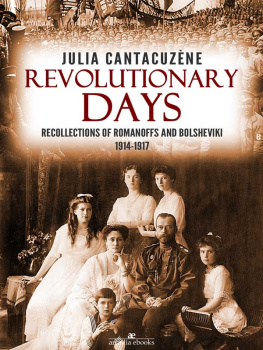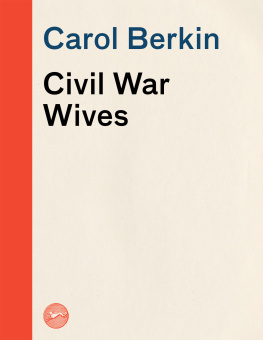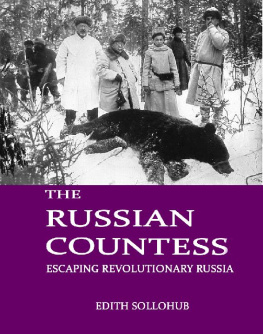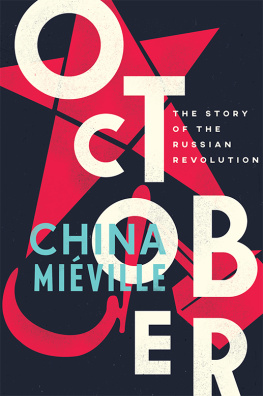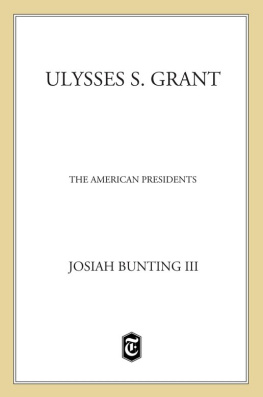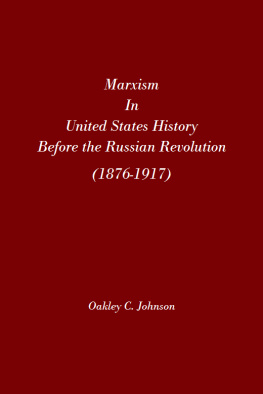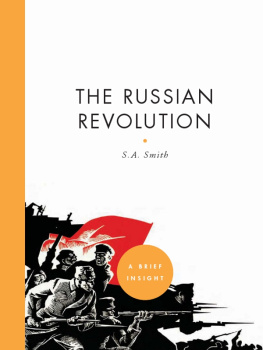TABLE OF CONTENTS
Princess
JULIA CANTACUZENE
Countess Speransky, Nee Grant
REVOLUTIONARY DAYS
RECOLLECTIONS OF ROMANOFFS AND BOLSHEVIKI
1914-1917

Arcadia Ebooks 2016
www.arcadiaebooks.altervista.org
Copyright 1919 Julia Cantacuzene
Revolutionary Days
Recollections of Romanoffs and Bolsheviki 1914-1917
(1919)
REVOLUTIONARY DAYS
To my husband
this modest tale of our adventures is dedicated
A WORD TO THE READER
These pages merely contain my personal recollections of what occurred around me from the beginning of the war until our departure from home. There is no pretense to literary merit, and I do not aspire to present one political party in a more advantageous light than I do the others. In each group I noticed many a loyal patriot trying to stem the fatal flood; and everywhere there was much suffering.
Recent Russian history has been so startling, and so weighted with importance for us, that all I saw and heard fixed itself in my mind. I venture, therefore, to believe I have made few, if any, misstatements; though I have had no documents at hand to use for verifying what I wrote.
One or two tales, such as the account of the Empresss arrest, came to me in a round-about way; but nearly everything I have described either happened in my presence and my neighborhood or was told me by some one of the people who took part in the scene. I have endeavored to repeat exactly and simply all such information.
Originally I intended to write only for my children; but I was tempted to publish, at the suggestion of a few friends, and by the generous offer of space in The Saturday Evening Post for a series of articles which appeared recently. They are in part reproduced here by the courtesy of that distinguished journal.
I am glad to take this occasion to thank those who helped me by their kind interest; most especially Mr. George H. Lorimer, Editor of The Saturday Evening Post; also to say that I have been deeply touched by the many beautiful letters which have come to me from both my Russian and American compatriots, who found time to read and to praise my very modest work. Because of this I have felt encouraged to present to the public this volume.
THE AUTHOR.
The Acasias, Sarasota, Florida.
January, 1919.
CHAPTER I
THE KNELL OF AUTOCRACY
For July 25, 1914, Saturday evening, a gala performance of the Imperial ballet was commanded in the quaint theater of our military camp at Kracnoe-Celo. By the Russian-Greek calendar it was July 12, but for the convenience of my readers I have translated the dating throughout this book to conform with Western practice. Since the time of the great Peter, the guard regiments of Russian autocrats have summered here; and this night, for the last event of the season, the pretty playhouse and garden were illuminated and decorated with flags: our own and the French. The latter were a remaining tribute to our allies, who had left us a few days previously after a lengthy visit. We had feted them with enthusiasm, offering them dinners, parades, theatricals and races. There had been manoeuvers also; while with speeches and conferences the serious business was done, leaving each party delighted with the other. Satisfaction in the past, hope for the future, showed on all faces, now that Poincare and the brilliant Viviani were on their homeward route across the Northern Sea; and we breathed easily in the sense of relaxation from ceremonious functions. We expected this evening to be one of unalloyed, informal pleasure.
A few friends dined at our camp-cottage; and in the party some diplomats, come down from town, brought us the unexpected news which we called sensational and exaggerated of an agitated stock exchange, an anxious Foreign Office, complications with Vienna, and a possible crisis that might mean war. This set us all speculating, though we treated the subject with only passive interest. Troubles with Vienna were chronic; and we had been on the verge of war a dozen times. We even felt humiliation, remembering how some years before we had been obliged to swallow the insult of the Bosnia and Herzegovina annexation by Austria, without a gesture of protest. After dinner my husband, who had been on the point of starting for a business trip to our estates, gave up his plan and his leave of absence, and joined our party for the theater. This was the first indication I saw that he regarded the table-talk with any seriousness; though even now he gave only his curiosity as a reason for deferring his trip, by way of explanation to our guests.
As we reached the theater, laughter and pretty clothes were our first impression, and we found the usual gay groups of officers, court functionaries and women standing about on the wide piazzas. Only, tonight faces were more excited than ordinarily, and discussions more animated. All the conversations were on the same new subject that had occupied our thoughts since dinner. Here, too, had come the visitors from town with their gossip.
The bell rang and interrupted comment, and we entered to find our places, and to stand near them until the Emperor came in, followed by his court and the functionaries of the camp on duty; at their head the Grand Duke Nicolas Nicolaiovitch, commander of the Imperial Guard and of the camp. Amid a great noise of spurs and sabres, the Sovereign having seated himself, with the Grand Duke on his left, the whole house did likewise. The orchestra played its best under the Imperial eye, and the curtain rose at once on one of the favorite fairy-tale ballets, of which we Russians never tire.
The Emperor looked pleased and at rest, and seemed really to enjoy the scene before him. He loved to get away from forms and ceremonies; and this night, in the simple surroundings of our military camp, his shyness found relief from the duties connected with his rank. The effort of the French visit was ended, and the face I saw when from time to time it was turned towards his splendid neighbor bore no trace or shadow of anxiety for the future.
It would be difficult to find two faces more completely contrasted than those of the two Nicolas Romanoffs our Emperor and his second cousin. The latter, in the small, stocky form beside him, evidently saw not only the person of a revered Sovereign, but also the embodiment of ideals of which he had made a second religion. As I looked at the two, the childish, charming appeal for sympathy with his pleasure, expressed in the eyes and smile of the younger man, and the answering gleam of devotion and respect in the proud old face, struck me forcibly.
Quite evidently the political news we had heard had not yet reached the Sovereigns ear, or else had not impressed him, for his brow showed no trace of pre-occupation other than that of interest in and appreciation of the pretty ballerines, who danced and posed for his approval. In the light of later events, I am inclined to think this act of ballet was the last hour of careless enjoyment our Emperor ever knew; and I am glad the deep preoccupation, which at that moment clouded his companions distinguished features, seemed not to strike the younger man. Afterwards I learned that Cantacuzenes trip had been given up at a telephoned word from the Grand Duke, who all that afternoon had been following the international news with keen realization of its weight.
Towards the end of the first act, a slight movement marked the arrival of M. Sazonoff, Minister of Foreign Affairs, who quietly joined his colleagues in the front of the audience. It was so unusual for a member of the cabinet to be late when the Sovereign was present at a fete, that it at once set us whispering, and gave color to the reports of the early evening; especially as the man looked weary, and was quite evidently consulting with his neighbors on either side. All three were oblivious of the scenery and motions of the ballet. The act ended; everyone rose; and the Emperor, recognizing a face here and there, left the hall, which at once emptied itself on to the piazzas.
Next page
